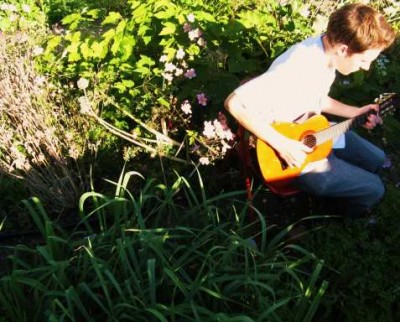I’ve been known to take extra sets of earplugs to outdoor concerts and pass them out to the parents of children who are obviously cringing from the overwhelming noise. It’s tricky, finding the right balance of pointing out the child’s discomfort while not faulting parenting skills. My efforts in this regard are generally met with genuine gratitude, which, in turn, makes me grateful to the parents for their openness. As we part ways, I’m always left with a sense that the parents are asking themselves, “Why didn’t I think of that?” Although I wouldn’t say it out loud to them, one answer would be, “Because you don’t have enough highly sensitive friends.”
Snarky comments aside, the big picture is that reducing human-generated noise is not about making things more comfortable for highly sensitive people (HSPs), but about the health of our species. If non-HSP ears, like the ears of the parents of the children I give earplugs to, don’t hurt from the same sounds that hurt mine, it doesn’t mean their hearing is not being detrimentally affected. The early warning function that HSPs provide for our species is a vital service our culture can benefit from in many ways. The trick is to shift our focus on topics like noise past the issue of HSP comfort and into the realm of HSP service. Framing the issues positively helps, too. Rather than harping about reducing noise, we can remind people of the pleasures and benefits of a peaceful soundscape. There is human noise that doesn’t dominate, that’s friendly, that blends.
The gift of being a highly sensitive person comes with a responsibility to use it well. Speaking up and speaking out about troubles and solutions in our society is an important part of being an HSP. We may need to educate ourselves so we can speak out in greater comfort and with increasing effectiveness. We may need to get creative about how we speak out. The point is that even if we have to invent HSP-friendly ways to speak up, we need to learn to speak up.
I don’t know whether he’s an HSP or not, but Bernie Krause and his organization, Wild Sanctuary, are speaking up about peaceful levels of noise. Krause is a field recording scientist who’s been listening to and recording the world’s natural sounds for 40 years.
“Animals divide up the acoustic spectrum so they don’t interfere with one another’s voices. … ‘That’s part of how they coexist so well,’ Kraus says. When they issue mating calls or all-important warning cries, they aren’t masked by the noises of other animals.”
~ Clive Thompson, “Quiet Please!” Wired magazine, June 2008
The Wild Sanctuary website offers information about Bernie Krause’s research plus cool things like a Google Maps overlay of natural sound snippets from around the world. Wild Sanctuary accepts donations through their blog page.
“We are beginning to understand late in the game that unimpeded natural soundscapes are a resource critical to our enjoyment and awareness of the natural wild; and that without them, a fundamental piece of the fabric of life will be sadly compromised, perhaps forever. That is why it is important to attempt to hear and treat soundscapes differently – as important to our well-being and health as the preservation of pure fresh water, clean air, and non-polluted soil.”
~ Bernie Krause, “Loss of Natural Soundscapes Within the Americas,” from the Wild Sanctuary website
